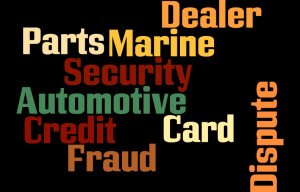Is your online payment form out of date and a security risk? Securing online payment forms requires an annual review at a minimum. Just because a hosted paypage form still works, doesn’t mean it’s secure or PCI Compliant.
PCI Compliance requirements have steadily tightened since 2014 for pay pages and all ecommerce transactions.
Hosted paypage options:
- Merchant hosts the form and collects payment on their web site. Beginning with PCI 3.0, significant additional PCI burden applies. Highest risk.
- 3rd party payment gateway hosted pay page; Provide a link directly to customers to pay. The form is served by and submitted by the payment gateway. It significantly reduces the potential for malicious activity that could compromise cardholder data. Lowest risk.
- An iframe hosted paypage has the appearance of residing on the merchant web site, but the payment data is captured by the 3rd party directly on their web host. The implementation method using iframes for payments has changed over the years to meet current PCI Compliance requirements, including to combat malicious javascript and Cross-Site Scripting threats.
“If your iframe hosted paypage hasn’t been updated in the last year or so it’s likely not PCI Compliant,” Christine Speedy, Card Not Present Expert.
A payment gateway is a secure transaction engine that facilitates the transfer of sensitive information to the processor, and is required for all online payment forms. Some gateways provide online payment forms at no additional charge. Vendor selection has a significant impact on risk mitigation, payment processing fees, efficiency, and PCI Compliance burden.
A payment gateway can be proprietary to a specific processor, or agnostic and compatible with multiple processors. While one provider for both services may seem to be the best choice, there are significant reasons the opposite may also be true, including risk mitigation. Bots present a significant risk of exploitation of online payment forms and may result in profit loss if additional steps are not implemented to mitigate risk of ‘card testing’, where criminals use online forms to submit fake transactions to determine if cards are good or bad. Every attempted transaction has an associated cost with it, and adding in chargeback fees from resulting disputes, the result could be tens of thousands in dollars in fees in a matter of hours.
If you don’t want to be the next law firm, CPA firm, hotel or distributor data breach headline, consult with a payments expert that understands the financial and risk ramifications of one payment gateway choice and implementation method over another vs ecommerce consultants or bankers that may have limited in-depth expertise to maximize your profits and mitigate risk exposure.
TIP FOR NON-TECHS: Does your online payment form look good on smart phones and other mobile devices? If not, there’s a pretty good chance your online payment page needs an update and is not PCI Compliant.
RESOURCES:
- PCI – Payment Card Industry Data Security Standards
- https://www.us-cert.gov/publications/securing-your-web-browser
- http://pcisecuritystandards.org
For PCI compliant solutions to collect online payments from your customers, contact Christine Speedy today. Get paid via your preferred methods, including ACH, credit card, wire and Paypal, while increasing security and convenience.

 Credit card fraud is still rampant in the US, even after US EMV liability shift convinced many merchants to purchase terminals to support chip cards. Marine, auto, and other high value parts dealers have long had a problem mitigating fraud risk with local and international parts.
Credit card fraud is still rampant in the US, even after US EMV liability shift convinced many merchants to purchase terminals to support chip cards. Marine, auto, and other high value parts dealers have long had a problem mitigating fraud risk with local and international parts.